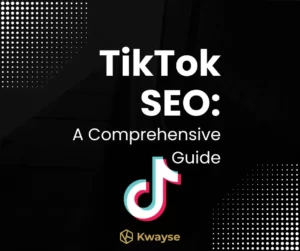Let’s face it, not all of us are web developers, or necessarily super tech-savvy, but a lot of us have heard the term SEO, and know it’s something every website should have. But what exactly is SEO!? And how does SEO help your website?
Firstly, what does ‘SEO’ stand for?
SEO is an abbreviation for the words ‘search engine optimization which is the process of getting your website to rank higher up in search engine results pages (SERPS). And when we refer to search engines, we’re talking about Google, Yahoo, Bing, and the likes. Although Google is by far the most popular search engine today, and therefore the most important. So for the rest of this article, we’ll refer to Google only when talking about search engines.
“If you want your website to be found online, it needs to rank well in Google.”
So how exactly do I get my website to rank well in Google?
Firstly it’s important to understand exactly how Google ranks websites…
When a user inputs their search terms, known as ‘keywords’, into the Google search box, Google then uses over 200+ ranking criteria to determine which websites to display to give the searcher the most relevant information related to their search.
As this is a basic introduction to SEO, we’re not going to cover exactly what the 200+ Google ranking factors are, but for those of you who are interested, here is a guide that explains more.
The important thing to take away from this is that Google wants to show its users/searchers the most relevant results related to the searches made, this keeps their users coming back time and time again. So your website pages must be relevant to the keywords you want them to rank for.
So how can you get your website to rank well in Google?
There are two main ways in which your business website can be seen in Google.
Firstly by paid ads / PPC
Have you ever noticed the little word ‘ad’ by the side of a search result in Google? These results usually appear at the very top or bottom of the search results pages. And it may come as no surprise to you that the word ‘ad’ stands for ‘advertisement’. Meaning that the owner of that website pays Google to have their website page advertised in that spot.
How much do paid ads cost?
The way that Google charges customers to advertise their website in the paid ad section is by a ‘pay per click’ method or PPC for short. This means that you pay Google each time someone clicks on your ad. The exact amount you pay and the position your ad is displayed in depends on how much competition there is for your target keywords, and how much budget you have allocated to spend per click. Generally, the more you spend, the higher your position, providing your website content is highly relevant to the keywords you are trying to rank for.
Are paid ads effective?
Despite being at the top of the search results page studies show that 70% of searchers skip past the paid ad’s and instead click on one of the results underneath, known as the organic results. What’s even more alarming is that studies show a whopping 30% per cent of those who did click on a paid ad, did so by accident, and click back immediately!
So does this mean that you shouldn’t do paid ads? The answer: not necessarily. You would need to weigh up the pros and cons.
Pros of PPC
- Can generate quick leads as your website could be displayed at the top of Google SERPS almost immediately after you have set up your Google ads account
- You only pay per click on your ad. So if no-one clicks on your page, you don’t pay.
Cons of PPC
- Not as effective as organic results which get 70% of the clicks
- Can be expensive depending on how much competition there is for your target keywords
- The minute you stop paying Google for PPC advertising – Your listing goes, and so do your leads!
- 30% of the people who clicked on your page might have done so by accident so you’ll pay for their mistake!
Conclusion: we feel that PPC could be an effective way for new businesses/websites to leverage immediate traffic to their website.
Larger businesses could also benefit from PPC by dominating both the paid ads and organic results sections, after-all there are still 30% of people who will click on an ad.
So apart from paid ads / ppc how else can you rank your website in Google?
If you, like many of us, skip past the paid ads and click on a result underneath them, you’re clicking on what’s known as an ‘organic result’. You cannot pay Google to rank your website highly in the organic results section. Rather Google will determine which pages to show for the keywords searched, based on their 200+ ranking criteria as previously mentioned.
So if you cannot pay Google to rank your website highly organically, how do you do it?
The answer: Search Engine Optimisation or SEO for short.
So what is SEO?
SEO is the process of optimizing your website pages based on Google’s ranking criteria to rank well for your target keywords.
For example, if you owned a barbershop in West London, your target keywords might be “best barbershop in West London” – meaning that you would like to have your website show up in Google’s number 1 organic spot for anybody that typed “best barbershop in West London” into Google search because the people searching this are most likely to want to come and visit your barbershop.
Okay, so now you understand what SEO is. How exactly do you do SEO?
Unfortunately, there is no short answer for this, as SEO is a vast field. Hence why there are agencies that specialize in offering the service of SEO for clients, as there are so many factors (over 200) that go into optimizing a website page for Google search results. You’ll find some useful guides below for those of you that want to learn SEO in more depth. Otherwise, it’s important to know that whilst many companies invest in building beautiful websites with outstanding functionality, without marketing the website via PPC or SEO, it’s about as useful as an outstanding store-front hidden down a dark alley.
So to learn SEO in more depth visit the Moz Beginners Guide to SEO, which is arguably one of the best beginners guides to SEO there is. All of our SEO specialists at Kwayse have gone through this course and benefitted tremendously.
If you’d like to find out how by using SEO we helped a start-up business generate over £100k in sales via their website in the first year, and how we could boost your sales too please contact us.




2 Responses
I like the simple way you explained this, thanks.
Most welcome Sherrie